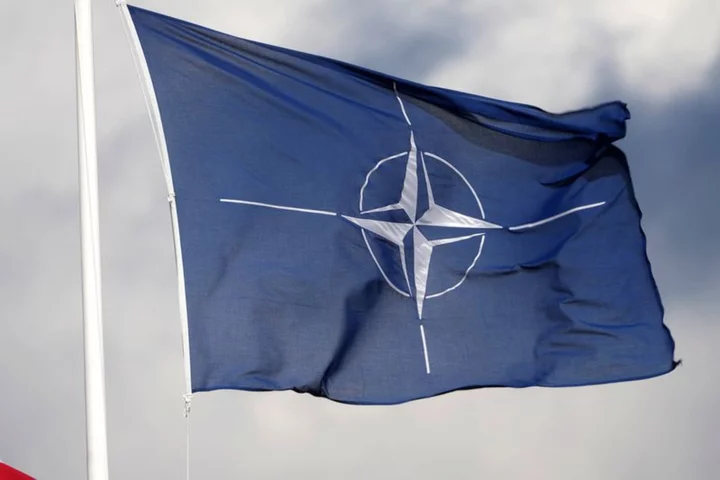BRUSSELS Ukraine stepped up its efforts to join NATO after Russia invaded last year, arguing that the security assurances given by Moscow, Washington and London when it relinquished its nuclear arsenal to Russia in 1994 were clearly worthless.
While eastern European countries say some sort of a road map should be offered to Kyiv at a NATO summit in Vilnius on Tuesday and Wednesday, the United States and Germany are wary of any move that might take the alliance closer to war with Russia.
Russian President Vladimir Putin has cited NATO's expansion towards Russia's borders over the past two decades as a key reason for his decision to send tens of thousands of troops into neighbouring Ukraine on Feb. 24, 2022.
Any expansion of the North Atlantic Treaty Organization must be agreed by all 31 members, and NATO Secretary-General Jens Stoltenberg has already ruled out a formal invitation for Kyiv at the summit.
Following are the steps that Ukraine has taken on its way to NATO membership, a possible compromise over the next steps - and Russia's view of the developments.
AN UNMAPPED PATH
In 2008, NATO agreed at a Bucharest summit that Ukraine - which was part of the Moscow-ruled Soviet Union until its 1991 demise - could eventually join the alliance.
But NATO leaders did not give Kyiv a so-called Membership Action Plan (MAP) laying out a road map for bringing it closer to the bloc. Moscow then illegally annexed Crimea from Ukraine in 2014 and backed separatist proxies in eastern Ukraine.
In a rare visit to Kyiv this April, Stoltenberg said Ukraine's "rightful place" was in NATO but later made clear it would not be able to join while the war with Russia, whose forces now occupy more of Ukraine's east and south, rages on.
At the start of June, Ukrainian President Volodymyr Zelenskiy said his nation understood this position, but at the end of the month he repeated calls for Ukraine to receive a "political invitation" to NATO at the summit.
Under the MAP process followed by other former communist countries in eastern Europe, candidates have to prove they meet political, economic and military criteria and are able to contribute militarily to NATO operations.
Since 1999, most countries aiming to join NATO have participated in a MAP although this procedure is not mandatory: Finland and Sweden, formerly neutral states which worked closely with NATO, were invited to join the alliance directly.
It is unclear what Ukraine's path to membership will look like as more and more countries, Britain and Germany amongst them, suggest skipping the MAP process.
With such a move, NATO could address demands by Kyiv and its allies in eastern Europe to go beyond the language of the 2008 Bucharest summit agreement without offering Ukraine an actual invitation or timetable.
Ukraine's military has taken major steps towards NATO standards since Russia's all-out invasion. The process is accelerating as its Soviet-built arms and ammunition gradually run out and the West trains Ukrainian troops according to NATO standards and sends more and more advanced weaponry.
WHY IS UKRAINIAN MEMBERSHIP SO SENSITIVE?
A mutual assistance clause lies at the heart of the alliance, which was formed in 1949 with the primary aim of countering the risk of a Soviet attack on allied territory.
It is cited as one of the main reasons why Ukraine cannot join NATO while in conflict with Russia, as this might immediately draw the alliance into an active war.
The clause, Article 5 of NATO's Washington Treaty, states that an attack on one ally is considered an attack on all allies.
Stoltenberg has made clear that, while NATO must discuss options for giving Ukraine security assurances for the time after the war, security guarantees under Article 5 will only be provided to full members of the alliance.
The Kremlin portrays the expansion as evidence of Western hostility to Russia - something Western powers deny, saying the alliance is wholly defensive in nature.
Moscow has said it would cause problems for many years to come if Ukraine joined NATO and has warned of an unspecified response to ensure its security.
(Reporting by Sabine Siebold; editing by Philippa Fletcher)

